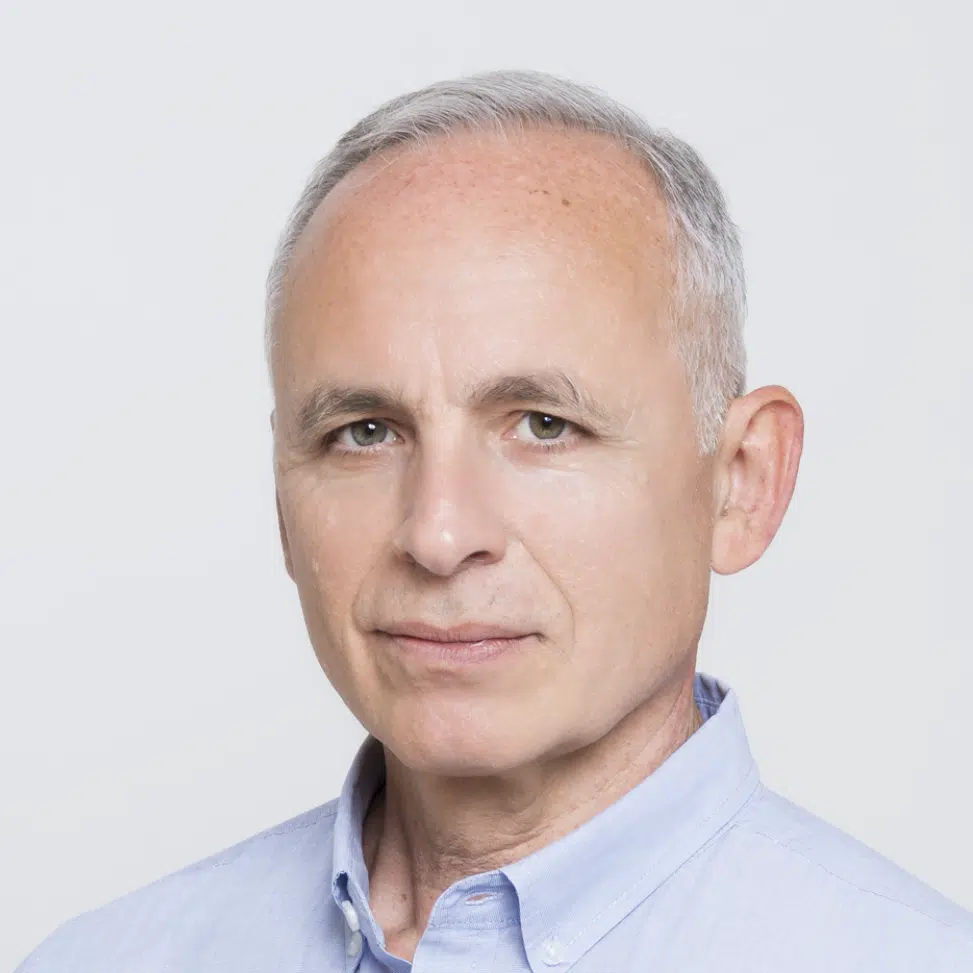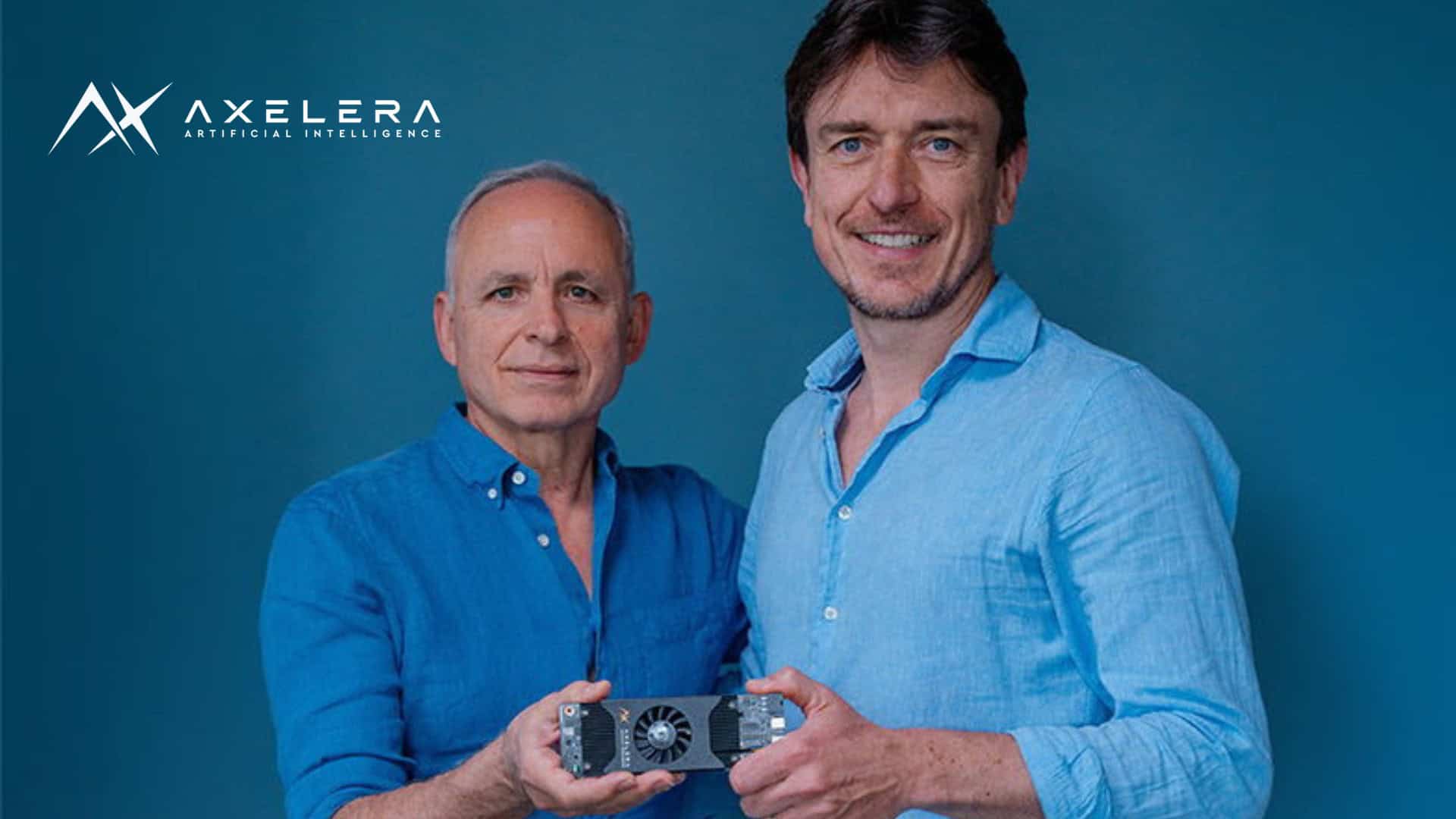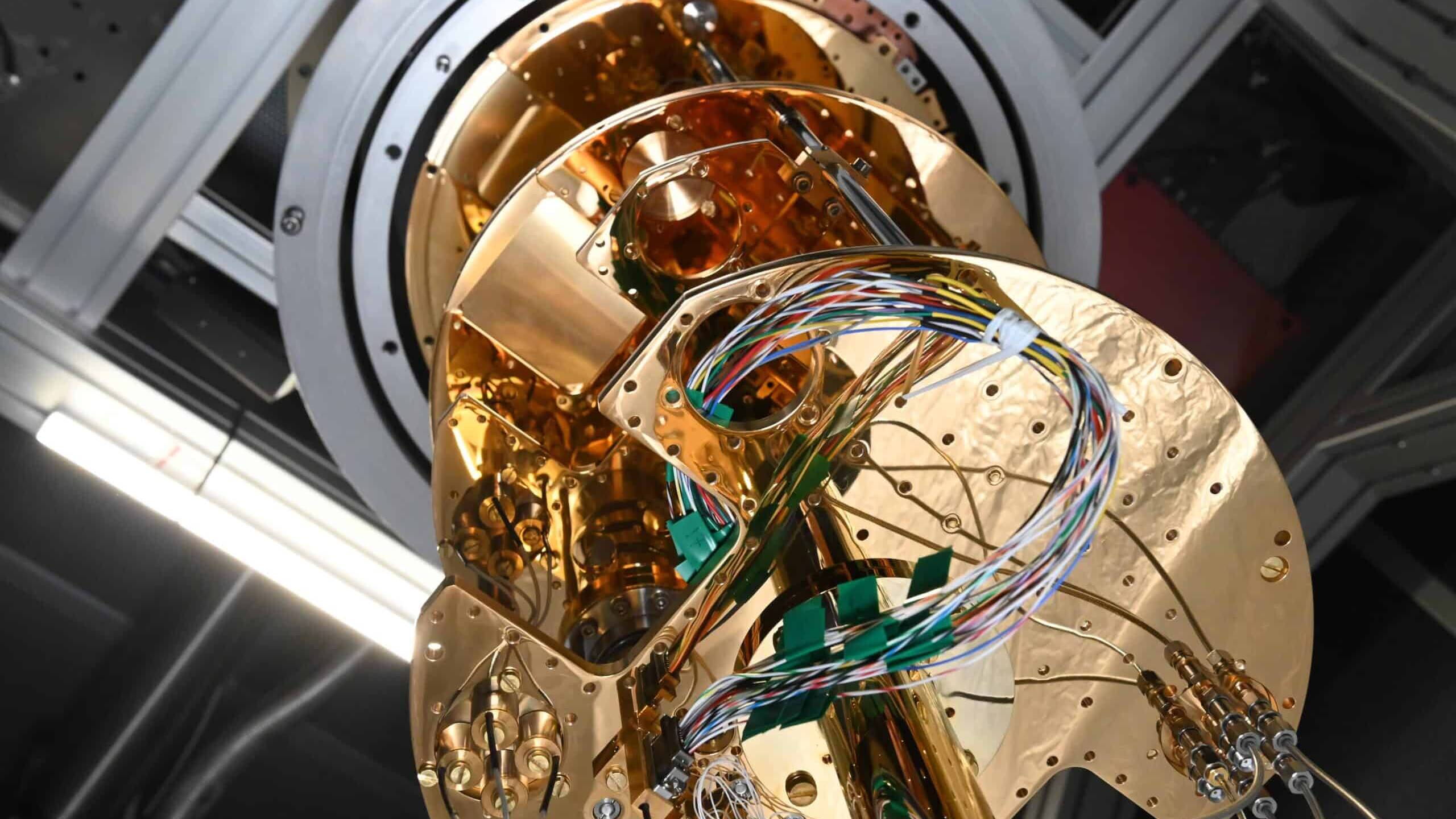In a conversation with Emma Schepers from Verve Ventures, Evangelos Eleftheriou from Axelera AI describes how the startup grew to more than 140 employees and managed to bring an AI solution combining hardware and software to the market in just two years.

CTO and Co-Founder, Axelera AI
Evangelos has accumulated over 35 years of experience in various management positions at IBM Research in Zurich. His exceptional achievements culminated in him being named an IBM Fellow, the most prestigious distinction a scientist or engineer can receive at IBM. In addition to other awards and distinctions, he was inducted as a Foreign Member into the US National Academy of Engineering in 2018. Evangelos has authored or co-authored more than 250 publications and holds over 160 patents.
There are over 40 billion connected devices in the world today. Whether it’s through sensors or cameras, the amount of information collected by these devices continues to increase and with it, the need to process that data at a quick enough pace for it to be useful. A robot needs to be able to instantly sort packages, a camera needs to recognize and report a security breach in real time.
Currently, such processing oftentimes happens in a centralized data center (more commonly known as the cloud). However, sending the data from sensors to the cloud for processing and then sending the results back to an interface that interprets them for end-users can take too long and can be power-intensive depending on the amounts of raw data involved. Data transfers to and from the cloud are not only energy- and time-intensive processes, but also expose data to hacks and impose potential data privacy issues.
Axelera is developing a novel hardware and software platform for AI that processes data right where it is generated. In traditional hardware architectures, the central processing units (CPUs) and memory chips are separate, but Axelera’s core technology combines the two. By putting the computing power in the memory chip itself, the time- and energy-intensive data movements between the cloud and the end device are eliminated, making the computations faster and an order of magnitude more energy efficient than standard digital computing.
You worked for 35 years in IBM research. What motivated you to join the startup Axelera as a co-founder?
After a fulfilling 35-year career at IBM Research, I was inspired to embark on a new venture. My passion for cutting-edge technology led me to co-found Axelera, driven by the opportunity to pursue and commercialize In-Memory Computing (IMC) for AI workloads. This decision was fueled by a desire to be at the forefront of AI technology innovation. At Axelera, I saw a unique opportunity to blend my extensive experience with a dynamic startup environment, focusing on a computing paradigm that has the potential to revolutionize AI applications. My move to Axelera represents not just a career transition but a commitment to advancing a transformative technology in the AI space.
How did you meet co-founder Fabrizio Del Maffeo?
I was introduced to Fabrizio Del Maffeo through Professor Luca Benini from ETH. Our initial conversations quickly revealed a shared enthusiasm for the potential of AI technology. At that time, I was already contemplating starting a venture to pursue In-Memory Computing (IMC) technology for AI applications. Meanwhile, Fabrizio was in the process of building an AI unit within Bitfury. The initial idea involved me joining Bitfury to lead and expand the technological developments within this unit. We engaged in various discussions and started initial planning.
However, the advent of the Coronavirus pandemic severely slowed down the technology sector, impacting Bitfury’s plans in the AI space as well. Consequently, our initial plans fell apart. Around June, Fabrizio proposed that the two of us co-found our own venture, with Bitfury as one of the potential investors. This proposal aligned perfectly with my long-standing aspiration to see groundbreaking technology effectively commercialized.
This synergy in our professional goals led me to resign from IBM and eventually join forces with Fabrizio. Despite our differing personalities, we have developed a strong working relationship based on transparency and mutual respect. It’s this solid foundation that has enabled us to successfully co-found and grow Axelera.
The problem that Axelera AI is addressing is bridging the cloud-edge AI gap. What does that mean?
When discussing AI, particularly large models like ChatGPT, it’s common to think of them residing and being trained in big data centers, or “the cloud”. However, there’s a growing need to bring AI capabilities closer to where data is actually generated, known as “the edge”. This is the cloud-edge AI gap that Axelera AI is addressing.
By bringing AI to the edge, we enable faster and more efficient data processing, which is crucial in real-time applications. Axelera AI is particularly focused on computer vision applications, where the potential for impact is enormous.
Consider the retail sector, where our technology can enhance security cameras and enable automated checkout systems. In the field of robotics, Axelera AI can improve navigation for autonomous robots and ensure precision in manufacturing processes. Each of these applications demonstrates the vital role of edge AI in transforming how industries operate, making processes smarter and more efficient.
Axelera recently started shipping its Metis AI platform to early access program customers for 149$. You state that it offers 9x the performance of an Nvidia or Intel card which costs about $900 a piece. How can a small startup beat such very large companies with new technology?
As a newcomer in the AI space, Axelera competes from a unique angle compared to giants like Nvidia and Intel. Our approach has been to specialize in and optimize our hardware specifically for neural networks, targeting computer vision applications. This dedicated focus allows us to devote significant time and resources to this specific area.
At the heart of our technology is the concept of in-memory computing, which significantly boosts performance while maintaining low energy consumption. This technological breakthrough enables us to offer our Metis AI platform at a competitive price, delivering performance that rivals, and in many cases surpasses, that of much more expensive generic hardware.
While companies like Nvidia could theoretically explore similar technologies, their current market position does not incentivize them to do so. Nvidia, holding a 90% share in the cloud market, has customers who are willing to pay a premium for their generic hardware. This diminishes their motivation to reduce margins or diversify into more specialized products. In contrast, Axelera’s strategy is to carve out a niche by providing highly efficient, application-specific solutions at a more accessible price point. This approach enables us to compete effectively with these larger companies.
Clients also need software tools to run their AI applications on chips, and Nvidia offers a wealth of them.
While it’s true that software tools are essential for running AI applications on chips, and companies like Nvidia offer a wide range, Axelera’s approach encompasses more than just chipsets. From day one, our team has been equally focused on the software side, understanding its critical role in the overall AI ecosystem.
Axelera offers a comprehensive platform designed for ease of deployment. Our goal is to simplify the process, allowing users to deploy AI applications without the need for extensive coding. This includes support for neural networks, pre-and post-processing capabilities, and an intuitive application composer.
We understand the varying needs of our clients. Therefore, our platform is designed to be flexible. Clients can leverage neural networks that we have developed, or they can bring and execute their own. For more sophisticated requirements, we provide APIs for our hardware, offering a degree of customization and control.
Looking ahead, we’re excited about our next-generation platform, which will support vision transformers. These are becoming increasingly important in a variety of computer vision tasks. This advancement is part of our commitment to continuously evolve and provide cutting-edge solutions that meet the diverse and growing demands of the AI industry.

Invest in Startups
As one of Europe’s most active venture capital investors, we grant qualified private investors access to top-tier European startups. With investments starting at EUR/CHF 10’000, you can build your own tailored portfolio over time and diversify across stages and sectors.
Axelera was founded in 2021 and was very quick to launch its first product and also grew to a considerable size of more than 130 employees in this short time. How do you manage this rapid growth?
Managing the rapid growth of Axelera since 2021 has been a complex but rewarding challenge. Central to our strategy is an extremely careful hiring process. We seek versatile “all-weather” individuals who can seamlessly transition between various roles and responsibilities, a necessity in the fast-paced environment of a growing startup.
Our headquarters in Eindhoven positions us perfectly to tap into the excellent skill pool in the Netherlands. Additionally, our branch office in Leuven fosters synergies with IMEC and KU Leuven University, further enhancing our talent acquisition and collaboration opportunities.
Here in Zurich, proximity to ETH, known for its exceptional graduates, is a significant advantage. We offer these bright minds a unique opportunity: to be part of building and marketing cutting-edge technology. This proposition is both exciting and rewarding, attracting top-tier talent to Axelera.
Our growing reputation also plays a vital role in attracting skilled professionals. As our presence and achievements in the industry become more widely known, we find more and more people seeking to join us, drawn to the innovative work we’re doing.
Moreover, Axelera’s extensive presence across 17 locations in Europe is a strategic advantage. It enables us to tap into diverse local talent pools, enriching our team with a variety of skills and perspectives. For example, in Portugal, we’ve brought on board individuals who previously worked for Synopsys; in Bristol, we have team members with experience at Graphcore; in Timisoara, we’ve found extremely skilled firmware engineers; and in Athens, engineers with outstanding software and hardware capabilities.
The next step for Axelera will be the full commercial launch of its AI platform. What does it take to make this happen?
Our journey towards the full commercial launch of Axelera’s AI platform is progressing strategically. Currently, our products are in a limited availability stage, accessible to select customers through our Early Access Program. This program, open to OEMs, SIs, and ISVs, is crucial as it allows early adopters to integrate our disruptive technology, providing them with a competitive edge in the market.
As we move forward, significant engineering work remains to ensure that our platform is fully production-ready. This includes refining our technology, ensuring robust and reliable performance, and preparing for larger-scale manufacturing.
We anticipate that the full production-ready platform will be available in mid-2024. In preparation for this, we are ramping up our production capabilities, finalizing the integration of our software and hardware components, and enhancing our customer support structures to ensure a seamless transition for our clients.
The transition from our Early Access Program to a full commercial launch involves careful planning and execution. We’re committed to ensuring that when our platform fully launches, it will not only meet but exceed the expectations of our customers, setting a new standard in the AI technology market.
Let’s turn from the very small to the big picture. As geopolitical tensions have risen, semiconductor sovereignty has become a topic of discussion. Is Europe heading in the right direction in this regard?
In the current global landscape, where geopolitical tensions are increasingly influencing technology and trade, the topic of semiconductor sovereignty has gained paramount importance. Europe’s response, particularly through initiatives like the European Chips Act, marks a significant step towards self-sufficiency in this critical sector.
However, while the act is a push in the right direction, there’s more to be done. I believe that Europe should aim not just for self-sufficiency but for leadership, especially in the field of RISC-V, the open-source chip architecture. We already have a burgeoning ecosystem for RISC-V in Europe, and it’s imperative that we continue to invest in and nurture this sector.
Another crucial aspect is investment. The semiconductor industry, by its nature, requires substantial time and resources to mature. We need more European investors who understand this and are willing to back semiconductor companies through their long development cycles.
Therefore, while Europe is taking steps towards semiconductor sovereignty, the path to becoming a global leader in this field involves a stronger focus on open-source architectures like RISC-V and a more robust investment ecosystem. These elements are essential for Europe not only to catch up but to lead in the semiconductor industry.
What role does Axelera have to play in this?
With our recent Series A funding of 50 million, Axelera is poised to build significant commercial traction in the semiconductor and AI technology space. Our long-term goal is to achieve an initial public offering, solidifying our position as a leader in this industry, particularly in continental Europe.
Our rapid growth and the speed at which we’ve been able to bring a groundbreaking product to market are testaments to our execution capabilities. Within just two years, we’ve developed a product that stands unmatched by competitors, a remarkable achievement considering the complexity of our industry.
One of our key challenges – and now a strength – has been the parallel development of both hardware and software. This approach, while demanding, has enabled us to create a cohesive and powerful AI technology platform.
In the broader context of Europe’s semiconductor and AI technology landscape, Axelera plays a crucial role. We’re not only contributing to the region’s technological advancement but also demonstrating the potential of European companies to lead on a global stage. As we continue to grow and move towards our goal of an IPO, Axelera is committed to being at the forefront of innovation, driving progress, and setting new benchmarks in the industry.
Written by
WITH US, YOU CANCO-INVEST IN DEEP TECH STARTUPS

Verve's investor network
With annual investments of EUR 60-70 mio, we belong to the top 10% most active startup investors in Europe. We therefore get you into competitive financing rounds alongside other world-class venture capital funds.
We empower you to build your individual portfolio.
More News
04.02.2025
Axelera is leading the democratization of AI
Axelera is developing a novel hardware and software platform for AI that processes data right where it is generated. In traditional hardware architectures the central processing units (CPUs) and memory chips are separate, but Axelera’s core technology combines the two. By putting the computing power in the memory chip itself, the time- and energy-intensive data movements between the cloud and the end device are eliminated, making the computations faster and 10 times more energy efficient than standard digital computing.
06.09.2023
“We’re developing the computers of tomorrow”
Quantum computing is a key technology of the future, says Pierre Desjardins of C12 in this interview. In order not to fall behind in this technological race, European investors need to be more courageous.
11.07.2023
“ChatGPT is a gift for all mature conversational AI platforms”
Any business can harness the power of tools like ChatGPT for the benefit of employees and customers by using products like conversational AI Druid that act as a middle layer between these technologies and the end user. In this interview CEO Liviu Dragan tells us about how ChatGPT benefits mature conversational AI companies and his plans to conquer the US market.
Startups,Innovation andVenture Capital
Sign up to receive our weekly newsletter and learn about investing in technologies that are changing the world.




